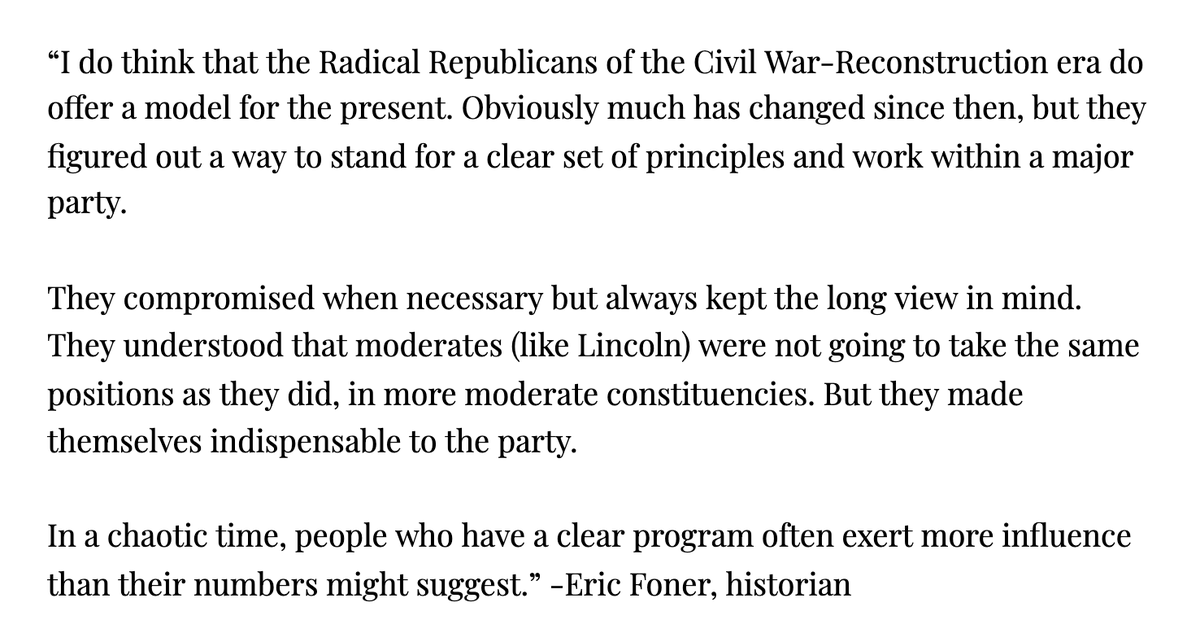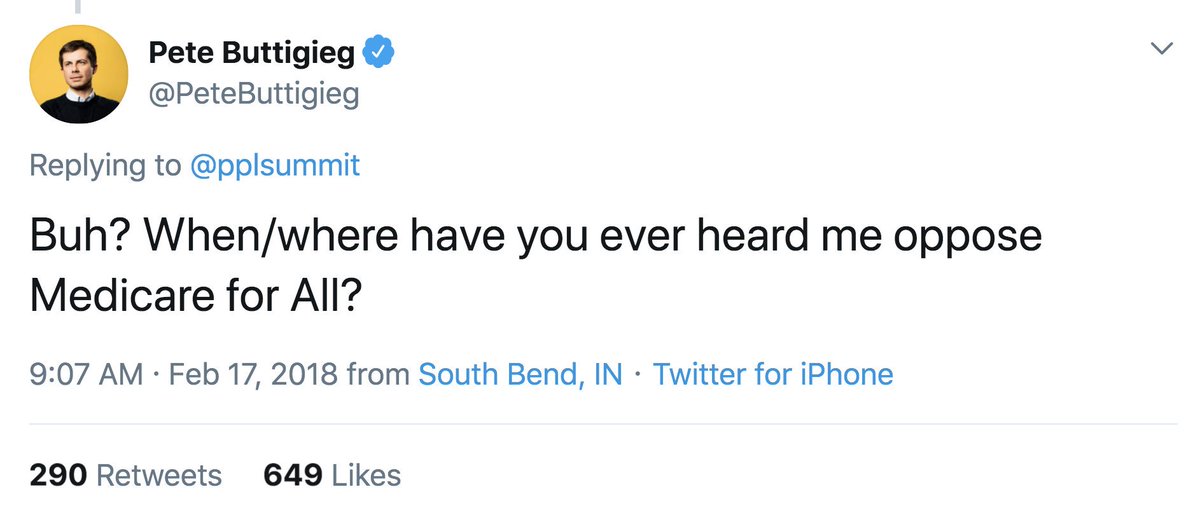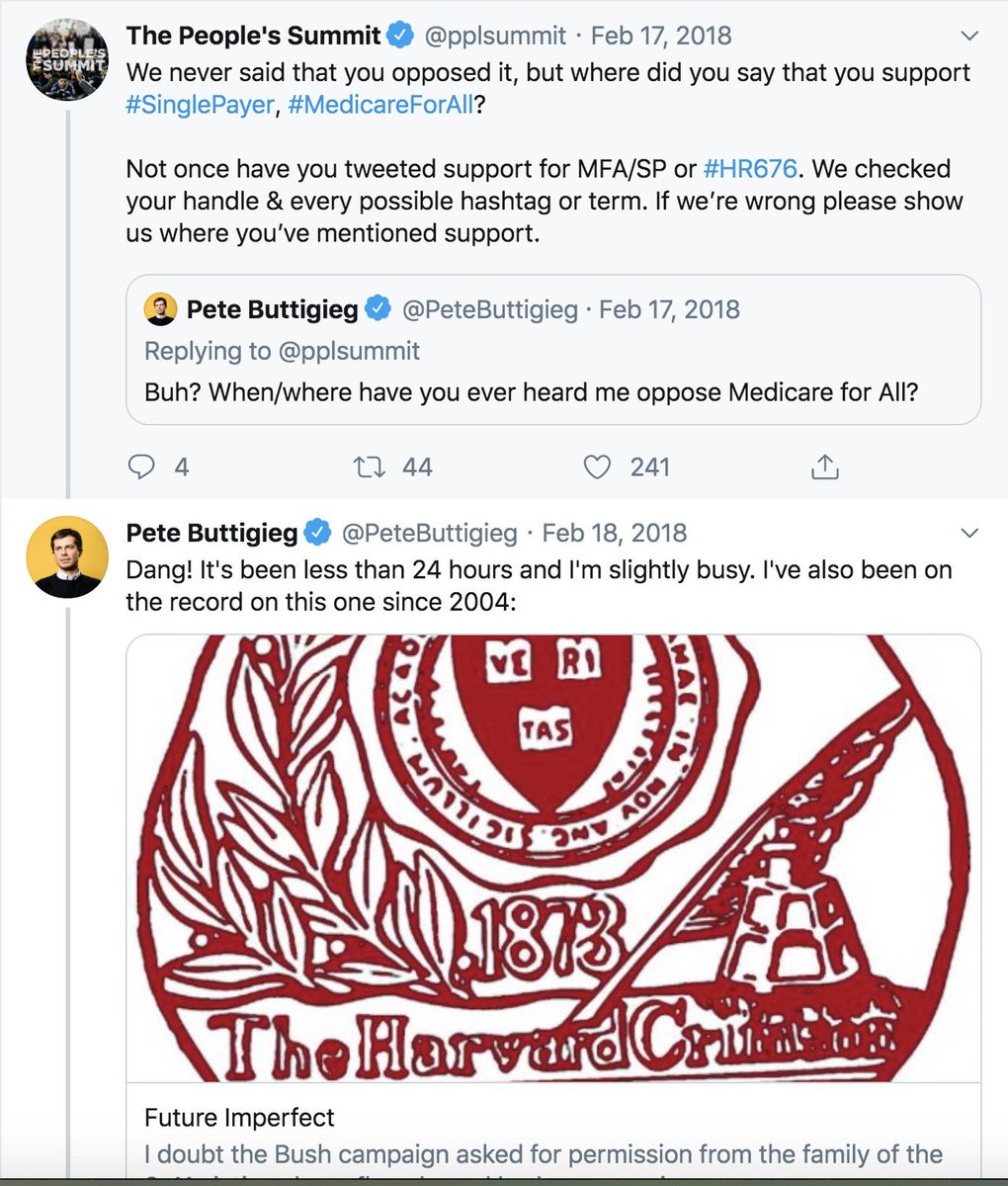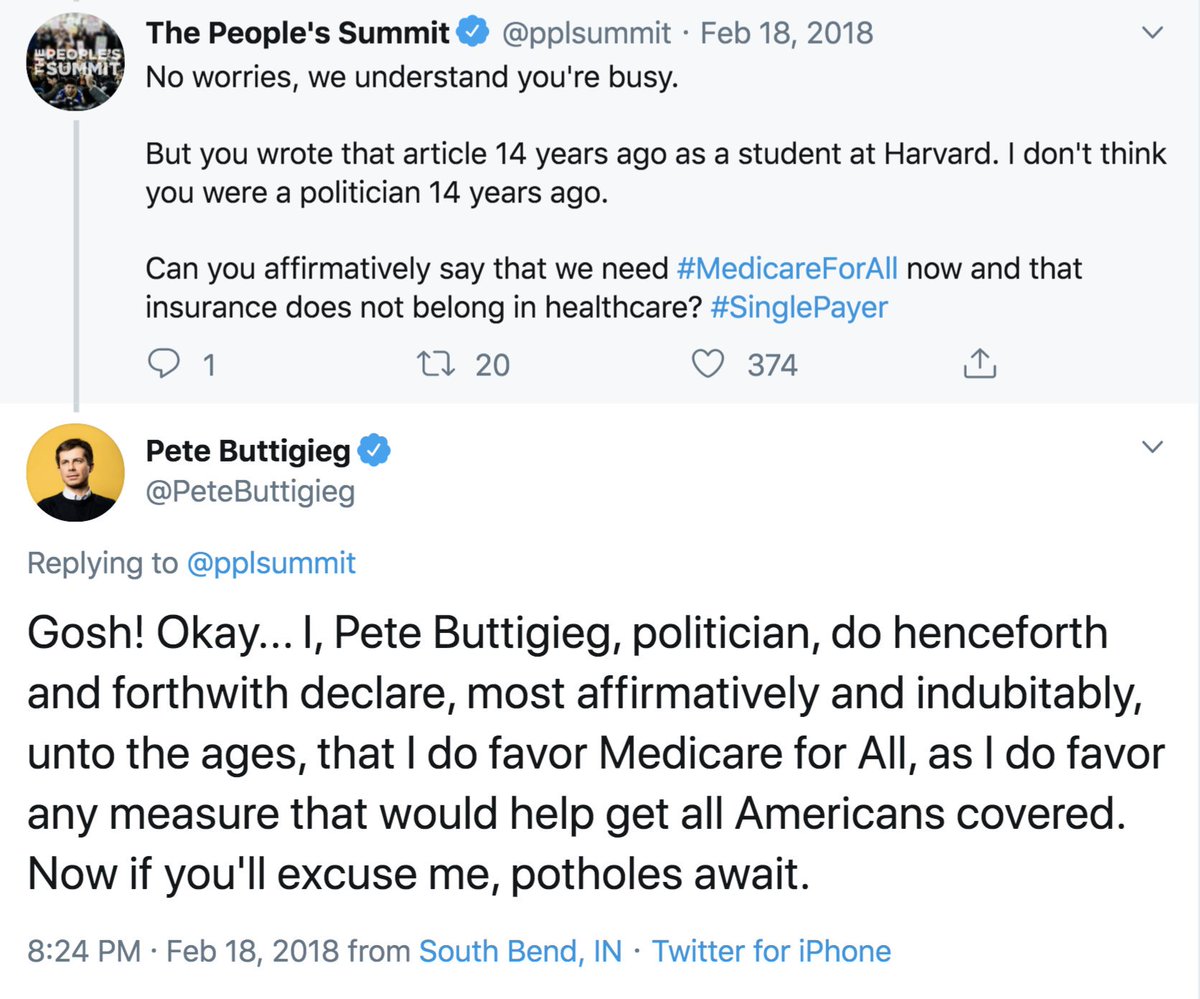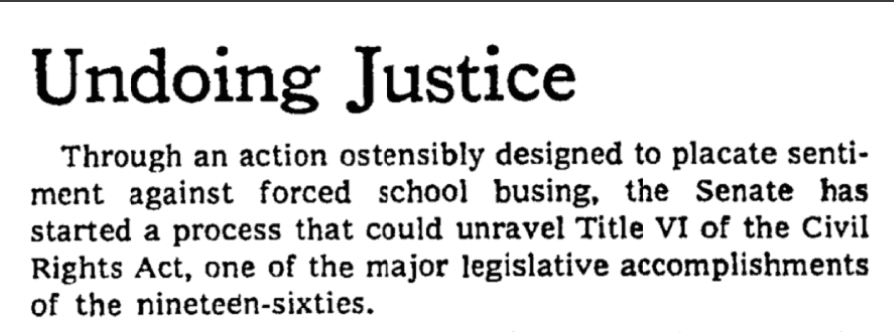
New York Times covering the abolitionist movement in 1859: "They are as rancorous and abusive as if they were on the point of utter annihilation. Their speeches sound more like the ravings of Bedlamites than the utterances of men seeking the accomplishment of a practical object." 
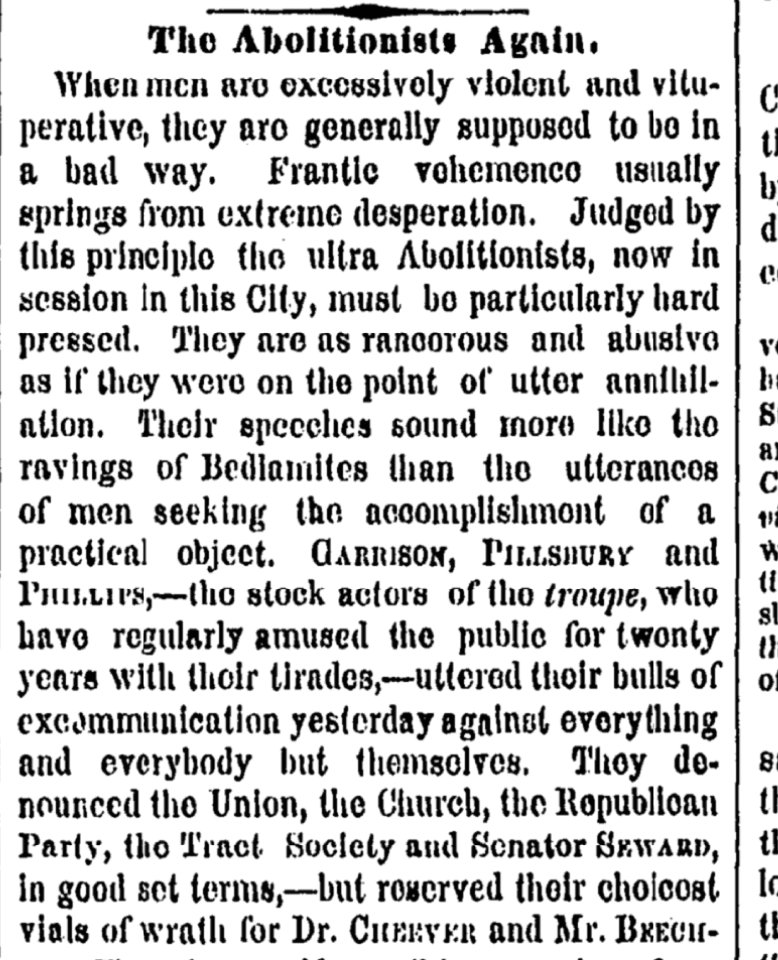
"If Mr. LINCOLN be elected, he will have to cut off the Abolition and extreme wing of his party; otherwise he will go by the board. Mr. THOMPSON believes that President LINCOLN, being a practical, common-sense man, and an old Whig, would reject the radical Republicans." 

• • •
Missing some Tweet in this thread? You can try to
force a refresh
